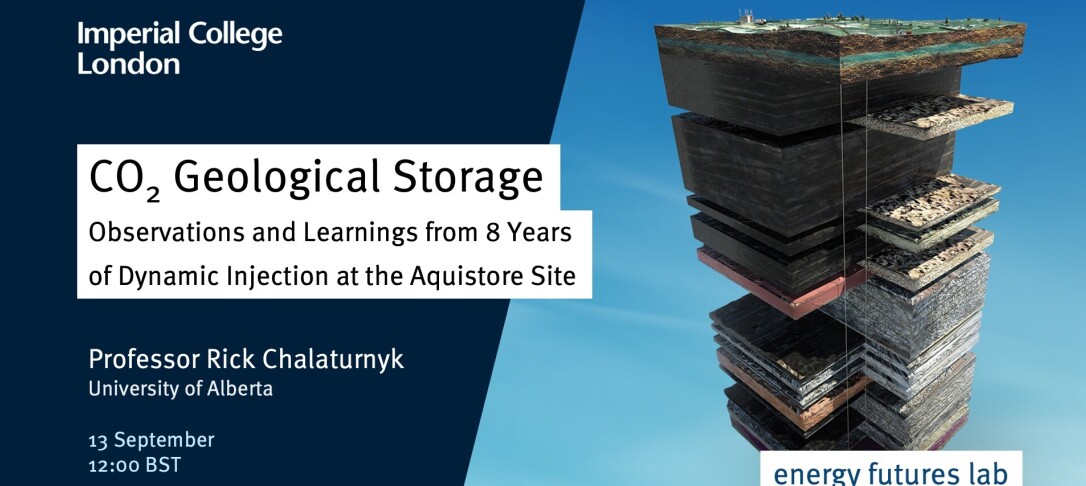
CO2 Geological Storage Observations and Learnings from 8 Years of Dynamic Injection at the Aquistore CO2 Storage Site in Canada
The Aquistore CO2 Storage Project is an integral component of SaskPower’s Boundary Dam CO2 Capture Project in southeastern Saskatchewan, Canada. This presentation will share learnings gained from studying and monitoring the dynamic responses that have been recorded since the drilling and completion of the CO2 injection and observation well in 2012 and the start of CO2 injection on April 16, 2015. The presentation will discuss issues ranging from well integrity to reservoir simulation to seismic monitoring based on this valuable historical data. In particular, the Aquistore project has provided an extremely valuable opportunity to collect real-time monitoring data of CO2 phase changes in the injection stream under fully integrated operational conditions and this provides unparalleled information for understanding geological storage under these conditions and optimizing completion systems. The presentation will also discuss interesting learnings around salt precipitation within the wellbore.
Rick Chalaturnyk is a Professor of Geotechnical Engineering in the Department of Civil and Environmental Engineering at the University of Alberta, where he has established the Reservoir Geomechanics Research Group, working primarily in the area of subsurface processes related to current and future energy processes. He has been involved in CCS research programs since 1999 and currently serves as a member of the Scientific and Engineering Research Committee (SERC) for the Aquistore project in Saskatchewan, among other CCS initiatives. Drawing on Aquistore data, Professor Chalaturnyk is contributing to the work of the Imperial-led ACTiON project, which aims to establish how an efficient infrastructure connecting CO2 sources with geological storage and utilisation options can be developed as part of regional decarbonisation efforts.
About Energy Futures Lab
Energy Futures Lab is one of seven Global Institutes at Imperial College London. The institute was established to address global energy challenges by identifying and leading new opportunities to serve industry, government and society at large through high quality research, evidence and advocacy for positive change. The institute aims to promote energy innovation and advance systemic solutions for a sustainable energy future by bringing together the science, engineering and policy expertise at Imperial and fostering collaboration with a wide variety of external partners.